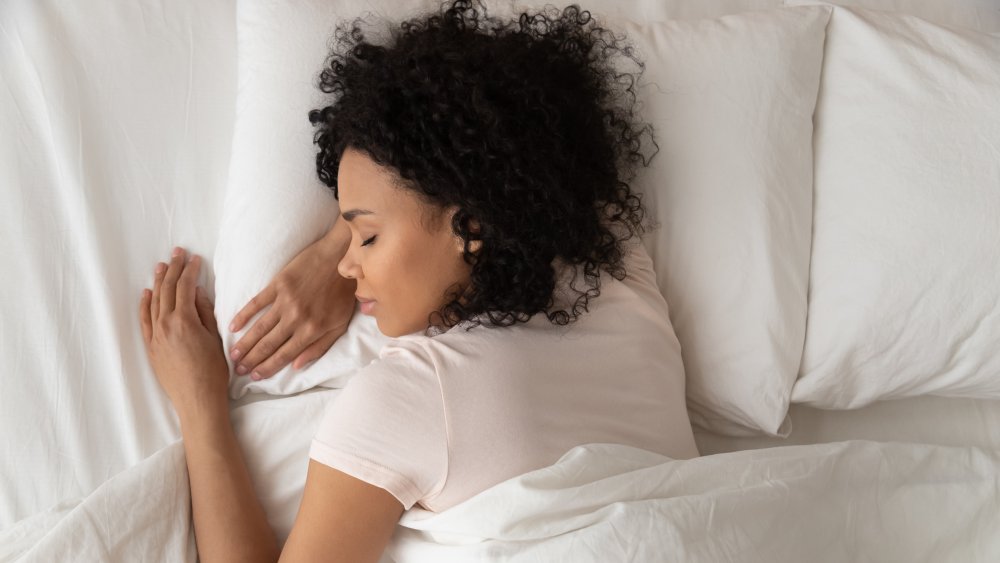The Trick To Stopping Stress Eating At Night
Stress eating, which is also called emotional eating, is when you're eating junk food in an attempt to relieve the stress you're feeling. You're not eating because you're hungry — you're eating because you're stressed.
Two 2017 studies published in the Journal of Applied Psychology looked at employees' stress related to work, negative mood, unhealthy eating, and sleep quality through daily journals kept by the participants. The first study had 125 participants from five different IT companies, and the second had 110 participants from a telecommunications company.
Both studies showed that when employees experienced work-related stress, particularly in the morning, they were more likely to stress eat at night. However, when they slept well the night before, they reported less stress eating the following night. The study revealed that a good night of sleep could help you deal with work stress, especially in the mornings, and help prevent stress eating at night. So, how do you make sure you get a good night of sleep?
Sleep better to stop stress eating at night
The Mayo Clinic recommends that you wake up at the same time every morning and go to sleep at the same time every night. You should be getting about eight hours of sleep each night — your body has a natural wake-sleep schedule, and this will help reinforce it.
Don't go to bed with a full or empty stomach. Make sure your last meal of the day is two hours (or longer) before bed, but if you're hungry, eat a small, healthy snack. Harvard Health Publishing recommends a few whole wheat crackers or an apple with a slice of cheese. Avoid alcohol and caffeine. Some chocolate (which contains caffeine) or a cup of wine might seem like it helps you go to sleep, but it will disrupt your slumber.
Create a sleep ambiance in your bedroom. Keep it dark, quiet, and cool, and get rid of distractions like television and phones. Charge your phone on the other side of the room if you need to. Only use your bed for sleep or sex.
Regular exercise can help you sleep better too, but avoid it too close to bedtime. Exercise during the day can help boost melatonin, which helps you sleep. Manage stress and anxiety with meditation, write down your worries in a journal, and set priorities.
If something else keeps you up, such as your legs moving, snoring, or burning pain in your throat, chest, and stomach, you should see your doctor. You might have restless leg syndrome, GERD, or sleep apnea.


